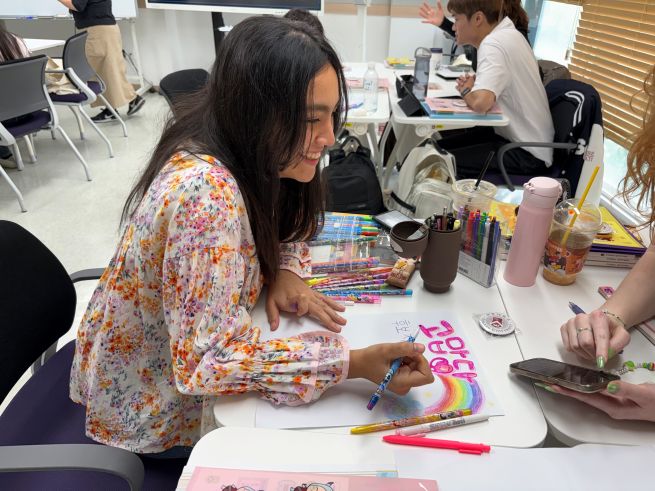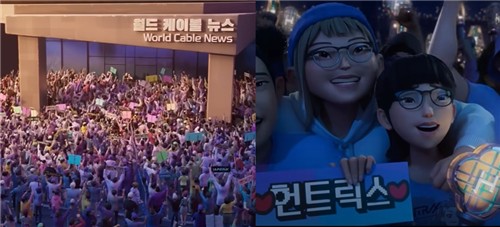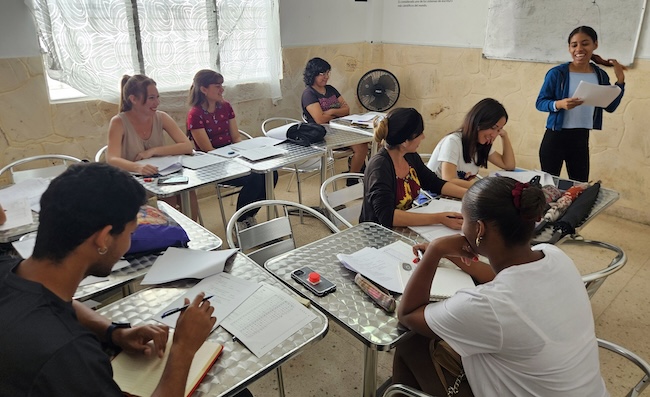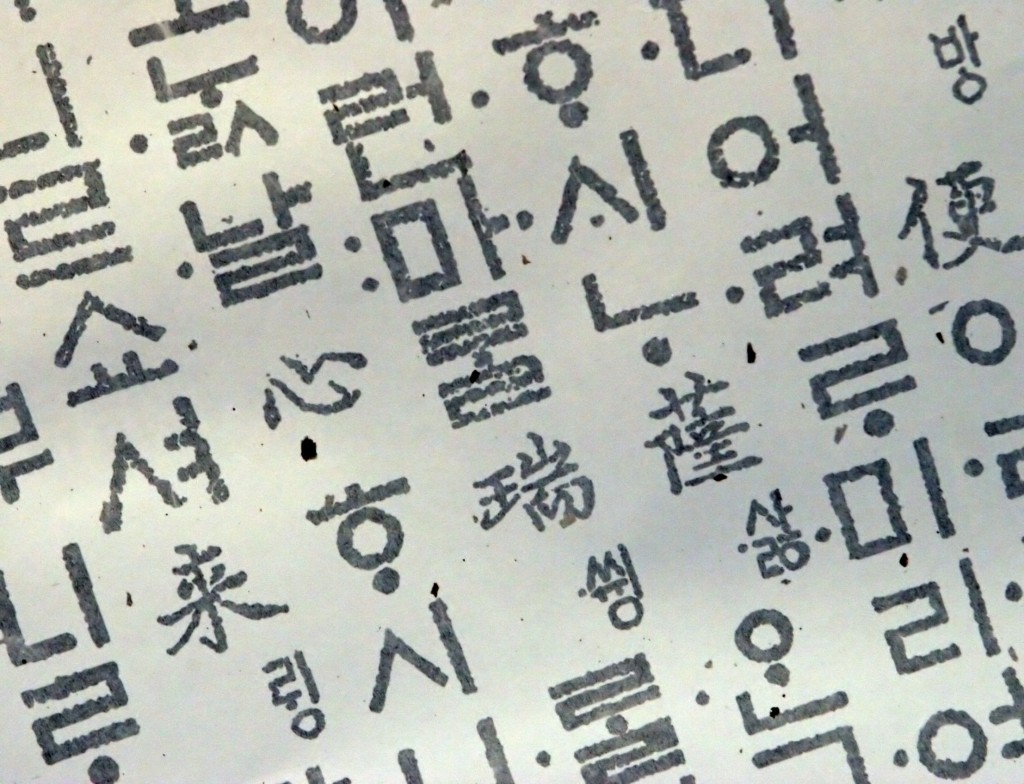
Students at Sogang University’s Korean Language Education Center make campaign pamphlets for a class election on September 23. (Yonhap)
SEOUL, Oct. 7 (Korea Bizwire) — In movie theaters across North America, audiences recently sang in unison — in Korean. The occasion was a sing-along screening of K-Pop Demon Hunters, the Netflix animated hit whose theme song “Golden” has become an anthem for fans of K-culture. For many, the moment marked how far the Korean language has traveled — from Seoul’s pop stages to classrooms and smartphones around the world.
As South Korea celebrates Hangeul Day this week, commemorating the creation of its alphabet 579 years ago, the appetite for learning Korean is surging to unprecedented levels.
From K-Pop Lyrics to Classroom Speeches
At Sogang University in Seoul, foreign students recently held a mock election — campaigning, giving speeches, and debating entirely in Korean. The exercise, part of the school’s highest-level Korean language course, reflects how far many have advanced.
“I fell in love with EXO when I was in middle school, and that’s how I got interested in Korean,” said Yulia, a 23-year-old student from Poland. She hopes to become a Korean-language professor after returning home.
Others cite similar motivations: a Hong Kong traditional medicine doctor who wants to better communicate with Korean patients, and a Thai student who discovered a fascination with Korea’s language and hospitality after meeting a Korean boyfriend abroad.
Enrollment at Korean language institutes continues to grow. Sogang University has already drawn 3,653 students this year, close to last year’s total. Yonsei University reports about 2,300 students per semester from 151 countries, while Korea University hosts roughly 10,000 foreign learners annually.

Hangul appearing throughout scenes from “K-Pop Demon Hunters.” (Image source: Screenshot from YouTube channel “Netflix Korea 넷플릭스 코리아”)
A Cultural Wave that Speaks Korean
Much of the global fascination with Korean traces back to K-Pop’s global rise. From Psy’s “Gangnam Style” in 2012 — which introduced billions to the phrase “Oppan Gangnam style” — to BTS’s lyrical influence on younger fans, pop culture has become a gateway to language learning. Now, groups like IVE and Enhypen perform to crowds in Europe and Latin America that sing along phonetically in Korean.
K-dramas have amplified the phenomenon. Hits like “Squid Game” have deepened curiosity about the language, while K-Pop Demon Hunters, the record-breaking Netflix animation surpassing 300 million views, has woven Korean phrases such as “unnie,” “gajaga,” and “so-reum-doda” seamlessly into English dialogue — sparking a new wave of linguistic intrigue.
Social Media Learners and ‘Jungwon-lingo’
Across social media, fans proudly share their Korean-learning journeys. Posts tagged #studyingKorean multiply daily, with users aiming to write letters to BTS’s Jin or understand K-drama dialogue without subtitles.
On TikTok, Enhypen member Jungwon taught fans how to say “I’m hungry” (“배고파요”), drawing more than 2.9 million views and comments like, “He teaches better than Duolingo.”

Students learn Korean at a Korean language school in Cuba, in this file photo taken Feb. 18, 2024. (Image courtesy of Yonhap)
A Language Rising with Its Culture
Once a niche academic pursuit, Korean is now a global cultural language — sung in stadiums, studied in universities, and shared across social media feeds.
As Professor Kwak Sang-heun of Sogang University’s Korean Language Education Center put it, “Our goal is simple — to help the world learn Korean not through textbooks alone, but through joy.”
And for millions worldwide humming K-Pop choruses in Korean, that mission is already well underway.
Lina Jang (linajang@koreabizwire.com)

